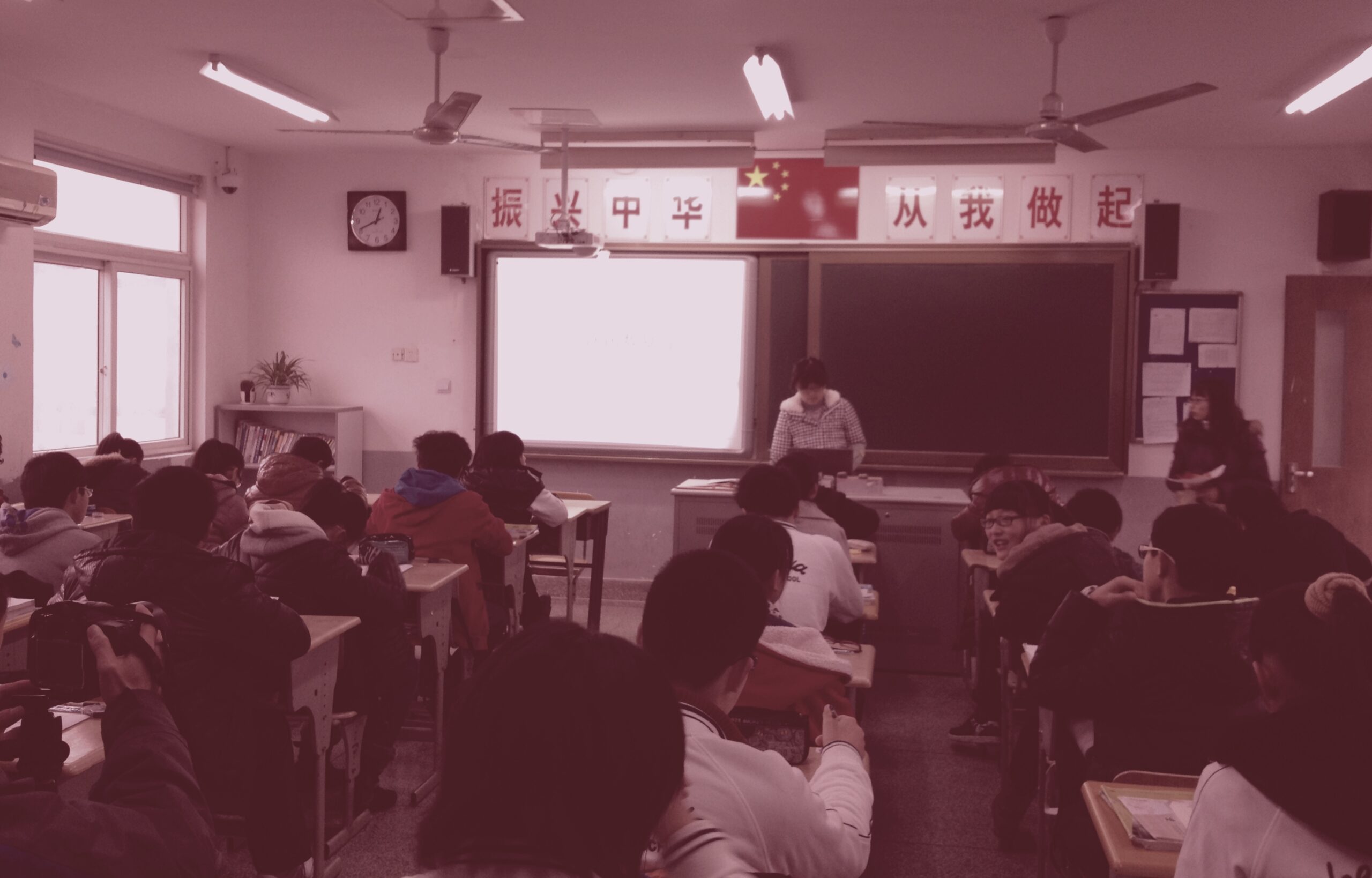Author:
(P.S: the attached photo is when I was in a class of my Chinese middle school, if you are curious)
From my perspective, the Universal Design for Learning is a beneficial and significant framework in this modern day of education, where societies are becoming more diverse and multicultural. The major reason why it is essential is the fact that it supports inclusion. No matter if it’s people with different skin colors, nationalities, or disabilities, everyone will have equal treatment and personalized resources. The two advocate educators, Shlasko and Pacheco (2024), claimed that this framework provides the benefits of multiple ways for learning demonstration and needs requests, which is what I think many curricula are lacking nowadays.
I came from a Chinese educational background before going international. During middle school, where there were extreme cases of learning just for exam marks, everyone was learning the same thing, and our dreams, personalities, and special needs were usually ignored. We were taught that you were a member of a class, meaning you have to sacrifice yourself for the sake of the whole team when it comes to having your unique ways of doing things. Everyone has their values of life, interests, and talents, but at that time, we were pretty restricted to topics outside of school subjects. Even when I was curious about English song lyrics and how they work, I was told by my English teacher to focus on my school content. When we wrote reflections on articles or stories, there was always a universal answer and they were never opinion-based.
I think as a human being, having personalities is a very humane and natural thing to do. Instead of this robotic curriculum where everyone competes for the same thing, having choices to design your learning path is essential to finalize your future vision, which everyone has and we should not deny those visions. That’s why I would encourage students to ask about their special needs so that they will feel they are more included in the group. I was really into foreign cultures in middle school, but the majority of my class were very stressed out about English, so I stuck with Chinese content with them when we picked movies to learn or write about. Honestly we could have divide into different groups to work on different content based on our interests. You should never sacrifice yourself for others when it comes to learning because other people’s learning paths do not have anything to do with your life. The study group you are in will be dismissed sooner or later, but your time and opportunities will be lost forever. Even though my curriculum sounds pretty individualistic, it helps every student to train living in an inclusive, diverse community while everyone’s needs are satisfied.
Reference:
Shlasko, D., & Pacheco, R. (2024, March 11). Applying Universal Design for Learning (UDL) supports inclusive education. Learning for Justice. https://www.learningforjustice.org/magazine/applying-universal-design-for-learning-udl-supports-inclusive-education

Your perspective on UDL has truly opened my eyes. I think that it is crucial for inclusion, particularly in ethnic situations. My schooling was less limited than yours, but I watched classmates struggle when their specific requirements were not covered. Your story of sticking to Chinese content rather than exploring English music struck a chord—group conformity can limit possibilities. I appreciate your notion of dividing into interest-based groups; it recognizes everyone’s strengths without imposing a one-size-fits-all approach. You are absolutely correct that you should not sacrifice your education for the sake of others. UDL may have made my peers feel respected, too. Your notion of a flexible and inclusive curriculum is inspirational.
Hi Disco,
Your reflection on Universal Design for Learning (UDL) aptly captures the worth of inclusiveness and personalizing education to cater to varied student needs. Your experience in the rigid Chinese education system highlights the disadvantage of single-size-fits-all approaches, which is the reverse in UDL through its flexibility and focus on learners. I can wholly relate to it since I’ve learned in a similar kind of education system based on the rigid curriculum. I concur with your commitment to providing students with the ability to be themselves and pursue their interests outside the set curriculum. While your focus on individualization is warranted, the issue of reconciling student-centered learning with institutional educational goals remains. Your answer in general presents a persuasive argument for more flexible and accommodating pedagogical approaches.
Good discussion on how a rigid exam-oriented education system can restrict creativity and critical thinking. Multiple forms of assessment will add to the richness of the learning environment.